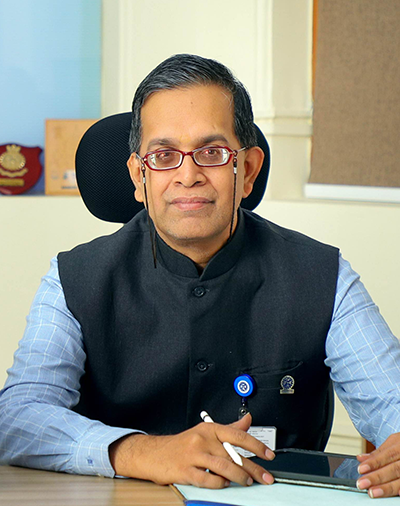Genesis of CSMCRI
With a coastline of about 3,500 miles, inland sources in Rajasthan and Little Rann of Kutch, and the rock salt mines in Mandi, India have possibilities of attaining a high position in salt production among the salt producing countries of the world. As is known, apart from being an indispensable item of food, salt is an important raw material for the manufacture of several heavy chemicals e.g. soda ash, caustic soda and chlorine. Besides, salt is used in food processing industries, such as fish curing, meat packing, dairy products and fruit and vegetable canning.
India had been an importer of salt for a long time as her own production was not sufficient to meet the demand. The position deteriorated further after partition, when the extensive rock salt deposits in the Punjab and the marine salt works in Sind went to Pakistan. Soon after the attainment of independence in 1947, India was faced with the problem of meeting the acute shortage of edible salt in various parts of the country. The Government set up an interdepartmental committee under the chairmanship of Shri H.M. Patel, who was then the Cabinet Secretary, to examine and report on the measures for overcoming the shortage of salt. The committee submitted several short term proposals to the Government and also recommended that a Salt Expert Committee should be appointed to investigate into the problems relating to the production, quality and utilization of salt.
The need for salt research was recognized by the Council of Scientific & Industrial Research (CSIR), New Delhi as early as 1940, when, at the instance of Dr.S.S.Bhatnagar, a Salt Research Committee was established to formulate a programme of research on the production and utilization of salt. This Committee was later amalgamated with the Heavy Chemicals Committee and revived in July 1948 with Dr. Mata Prasad as the Chairman.
In April 1948, the Government of India constituted a Salt Expert Committee under the chairmanship of Shri P.A. Narielwala to advise the Government on the measures necessary to place the Indian salt industry on a sound footing. After examining a number of salt works in India, the Committee came to the conclusion that if the quality of salt is to be improved and the salt works are to operate economically and efficiently, it would be necessary (i) to devote more attention to research, (ii) that model factories be set up in the principal salt producing centers to serve as demonstration units for both small scale and large scale manufacture, and (iii) that research stations be established to investigate methods of improving the quality and the yield of salt and also of recovering the byproducts.
In September 1951, Shri C.C. Desai, the then Secretary of the Ministry of Works, Production and Supply, proposed that a Central Salt Research Institute be established under the aegis of CSIR for carrying out research on marine salt, and salt from inland lakes and sub-soil brine. It was suggested that the Institute be located at some centre in Saurashtra; the Ministry of Works, Production and Supply would support any proposal for a grant from the Salt Development Cess for setting up the Institute.
Meanwhile the Government of Saurashtra made a generous offer to place any of their buildings in Saurashtra at the disposal of the CSIR for housing the Institute. If no building was found suitable, the Saurashtra Government offered to pay for the building, provided the Institute was located in Saurashtra.
This offer from the Saurashtra Government was considered by the CSIR, particularly in view of the proposal from the Ministry of Works, Production and Supply that the Institute should be located in Saurashtra. Shri P.N. Kathju, the Planning Officer of the proposed Institute, carried out a preliminary survey of possible sites, both in the north coast and south coast of Saurashtra, for the location of the Institute. Bhavnagar, which being a flourishing centre of higher education in Saurashtra was considered to be suitable for locating the Institute. The Saurashtra Government offered to place at the disposal of the CSIR a magnificent building, "Raj Hotel", for housing the Institute, two bungalows and 125 acres of land for the Experimental Salt Farm (ESF). In view of the facilities offered by the Saurashtra Government for the establishment of the Institute, the CSIR decided to set up the Institute at Bhavnagar.
Thus Central Salt Research Institute (now known as Central Salt & Marine Chemicals Research Institute) was inaugurated by Late Pandit Jawaharlal Nehru, the First Prime Minister of India on 10th April, 1954. The first local Planning Committee consisted of the following members:
- Shri G.C Oza, Minister for Industry & Supply, Saurashtra Government, Rajkot Chairman
- Shri Upender J. Bhatt, Chief Engineer, P.W.D., Saurashtra Government, Rajkot Member
- Dr. Mata Prasad, Director, Central Salt Research Institute, BhavnagarMember
- D.S.I.R. (Ex-officio)Member
- I Shri J.G. Shah, Collector of Bhavnagar, BhavnagarMember
- Shri P.N. Kathju, Planning Officer, Central Salt Research Institute, Bhavnagar Secretary
Excerpts of the Speeches of the Dignitaries
Inaugural function was attended by Shri K.C. Reddy, Minister for Production of Government of India, Shri U.N. Dhebar, Chief Minister of Saurashtra, Dr. S.S. Bhatnagar, Director General, Council of Scientific & Industrial Research (CSIR), Shri P.A. Narielwala, Adviser, Tata Chemicals, Sir Krishna kumar Sinhji, Ex-ruler of the then Bhavnagar Princely State and many other important dignitaries.
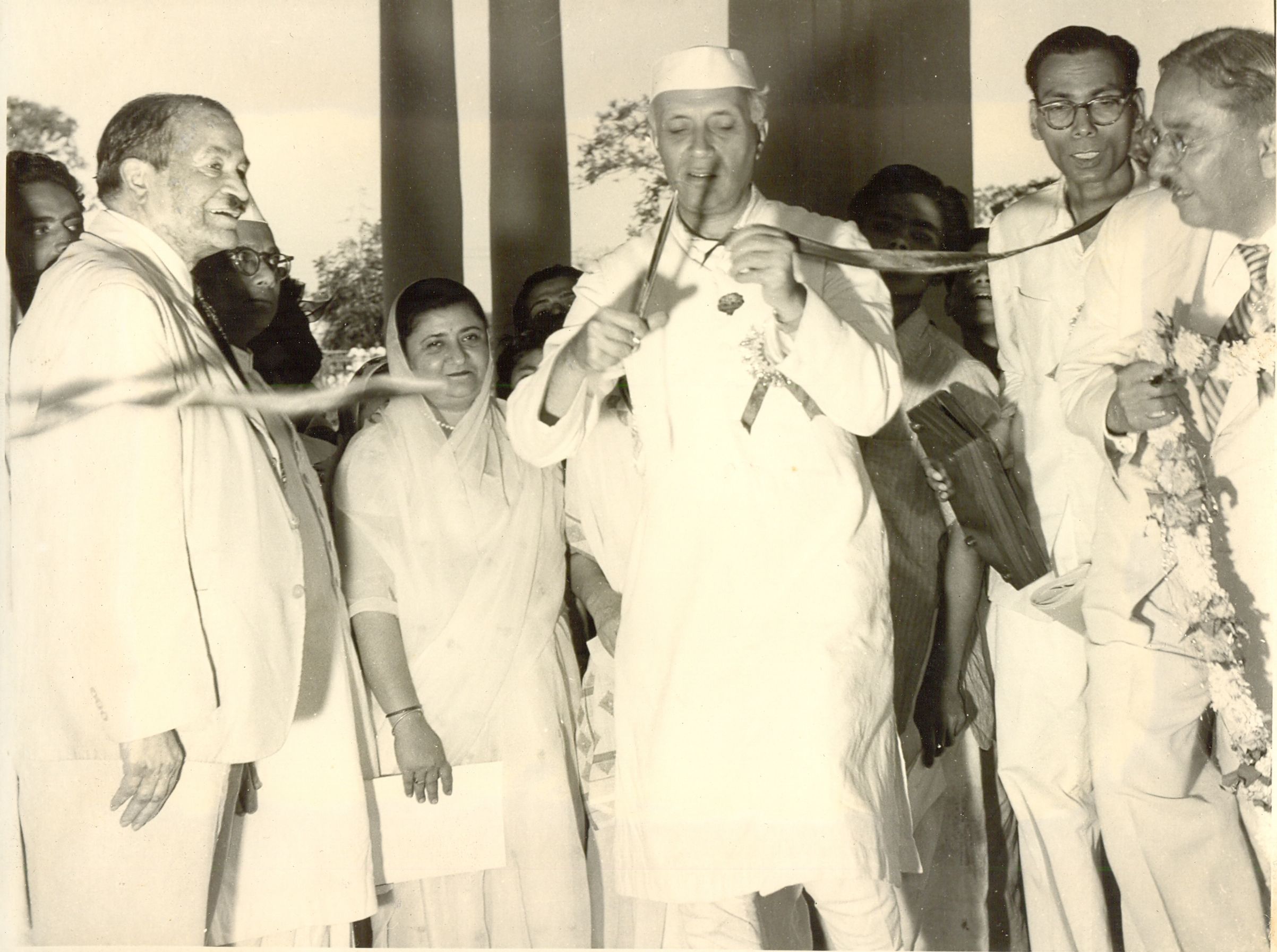
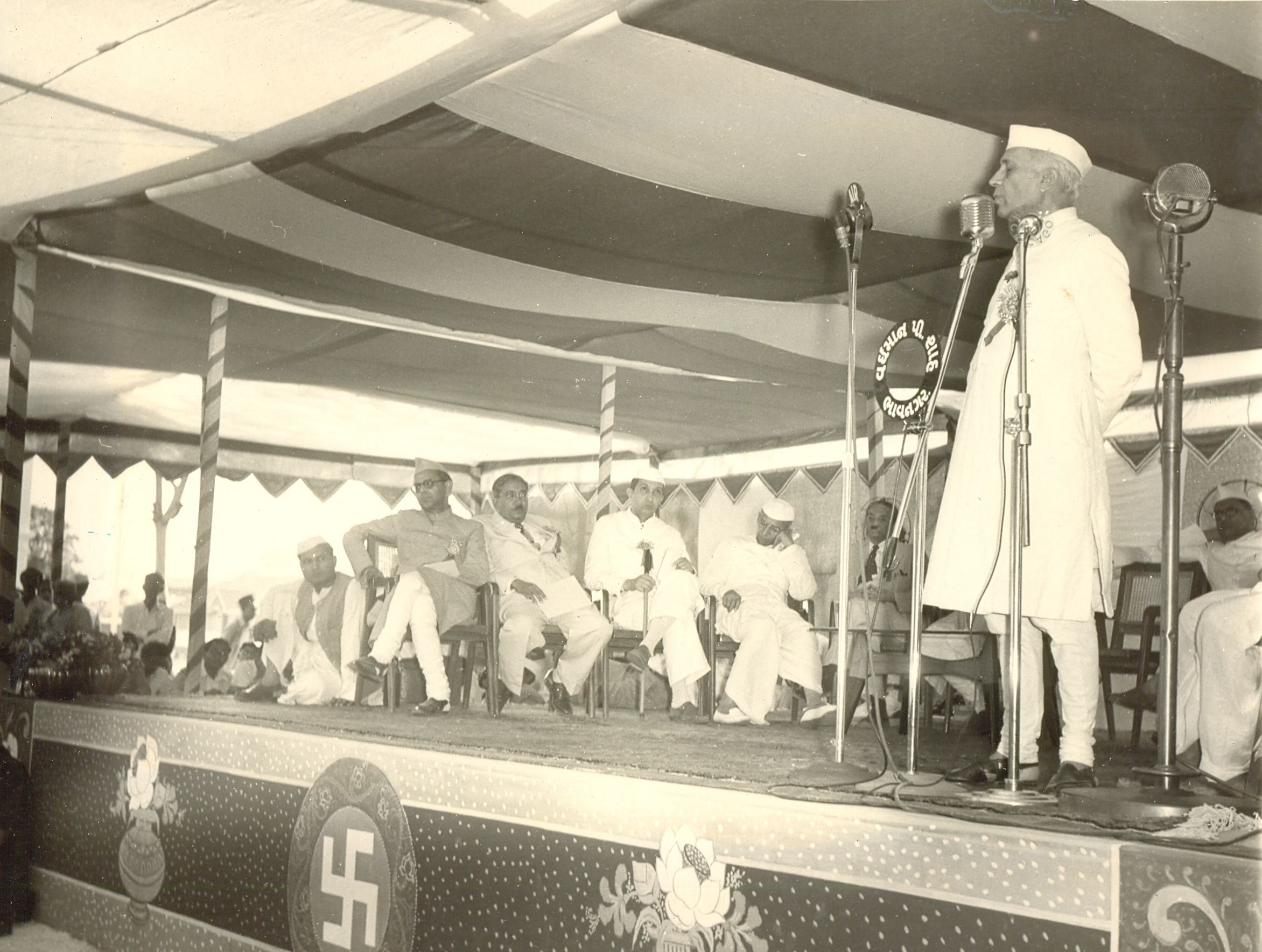
Hon. PANDIT JAWAHARLAL NEHRU, Prime Minister of India
"I think that in paying special attention to scientific and industrial research during the last four or five years we had laid a solid foundation of science on which we could build a splendid edifice of New India. Without a strong foundation, no structure can last for any length of time. Just as the foundation of a building is not seen, but the entire structure is supported on it, so our efforts in advancing science may not yield immediate results in terms of money but I have no doubt that they have been directed along right lines". "The other important aspect is that the whole of our country should rise to prosperity. For this reason we have located the national laboratories in different parts of the country. We do not want one part of our country to grow at the expense of another. The path of progress has to be followed by all of us and not by a selected few. These research laboratories are just symbols to focus our attention on newer aspects and to raise the country as a whole. I do not view these laboratories from the consideration that they will handle particular problems which lie within their scope. I look upon them as temples of science built for the service of our motherland".
"i do not wish any worker to come to these laboratories merely with the aim of earning his living. What I wish is that our young men and women who come here should have a zeal for working out problems which would have great consequence. That would give vitality to these Institutes. They should realize that service to science is real service to India - no, even to the whole world; science has no frontiers".
Shri K.C. REDDY, Minister for Production
"Scientific knowledge can either make or mar humanity, depending on what use such knowledge is put to. In the course of history it has been developed, and misused quite often for destructive purposes in devastating wars thereby degrading science and doing irreparable harm to mankind. The recent race between some nations in the production of horror weapons, like atom bombs, hydrogen bombs and as it is rumored, even nitrogen bombs-has put the whole humanity in mortal fear of dreadful developments. It is a glaring example of how the misapplication of science would mean the end of civilization. The promotion and use of science, on the other hand, for the purpose of ridding humanity of disease, famine and poverty, and raising generally not only the living standards of humanity but also, if I may say so, the moral values of world should be our precept and practice".
Shri U.N. DHEBAR, Chief Minister of Saurashtra
"Though a layman, I may be permitted to say just one word about the essential importance of scientific research in the reconstruction of this country. Modern knowledge on almost all subjects is the fruit of the new technique of inductive learning and experiment. The knowledge that we have, has been accumulated in many generations but the ambitious soul of man does not rest content with the patrimony of his forefathers. It yearns for more knowledge and yet more knowledge and to unravel further the secrets of nature. This hunger for knowledge is motivated both by the spiritual needs of man and by his physical needs which compel him to seek mastery over nature. Much of our modern scientific knowledge we owe to the West, but we too have made contributions to it and now that there are no political shackles on this great nation, we must rise to our full stature in the realm of scientific research and make our due contribution to the achievements of nations".
Dr. S.S. BHATNAGAR, Director General, CSIR
"It is a matter of great delight to me that where ever National Laboratory has been brought into existence the whole atmosphere of scientific work has undergone a change for the better. Other Institutions also follow our example and provide better furniture, better equipment and better salaries to their scientific staff. Visitors and residents of Bhavnagar will see in this laboratory the touch of the Council and appreciate that, in the quality of staff and scientific equipment and furniture, this Institute can boast to be the best."
Shri P.A. NARIELWALA, Adviser, Tata Chemicals Ltd.
"This Institute has before it, a number of problems, the solution of which will be of great value to the salt industry. Discovering newer uses for salt, producing different qualities of salt for different industrial needs, finding cheap methods of recovering byproducts of the salt industry are only a few of them". "As the bulk of our salt is obtained from sea water, there are large potentialities of recovering the other salts present in the sea, like potash of which there is shortage in the country, bromine, because of its use in the manufacture of dyes, insecticides, etc. magnesium salts from which we may produce magnesium metal, the alloys of which are coming increasingly into use in the manufacture of aircraft and finally the recovery of elemental sulphur of which we have no known source in the country".
Dr. MATAPRASAD
"Happily, Saurashtra has a coastline of about 700 miles and all along this coast; there are many salt producing centers. I invite the salt manufacturers in Saurashtra to take active interest in the research work that is being conducted and will be conducted at this Institute and the salt farm and experimental station attached to the Institute, and to utilize the new knowledge for raising the yield and for improving the quality of salt they produce and for bringing into existence new industries employing the by-products from salt manufacture".
CSMCRI Today:
CSIR-CSMCRI with its persistent efforts and continued scientific excitement has achieved technological excellence in the core mandate it pursues and is one among the top performing national R&D laboratories in the country. As on January 2024, the Institute has around 214 staff with 170 S&T staff on its roll and around 200 research fellows and project assistants pursing their doctoral programme and engaged in several projects.
CSIR-CSMCRI currently focuses on diverse and highly applied research areas such as salt and marine chemicals, water desalination and purification, membrane based processes for separation & concentration, inorganic materials and catalysis, fine & speciality chemicals including sensing and diagnostics molecules, renewable energy, plant molecular biology & biotechnology with emphasis on seaweeds & salinity tolerance and waste management with a thrust on value recovery and environmental Impact assessment.
The institute’s endeavour/outcome is well balanced by knowledge generation, intellectual value creation, industry association and societal interventions. This institute is recognized as one of the best performing national laboratories of this country within and outside CSIR fraternity. According to the 2024 Scimago Institutions Rankings (https://www.scimagoir.com/rankings.php?country=IND&ranking=), we are among the top 700 Global Institutions and top 50 institutes of our country
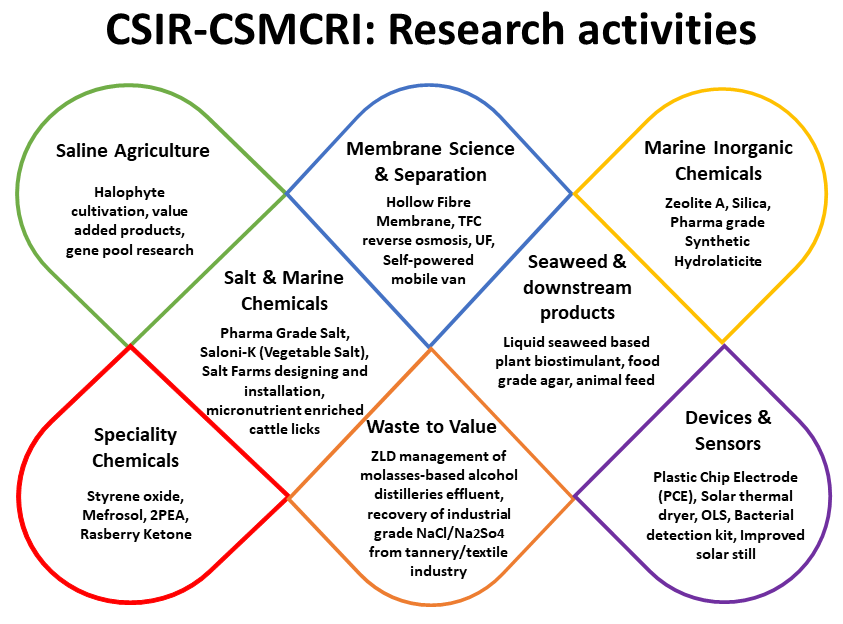
Currently it has eight divisions namely:
- Marine Elements and Marine Environment
- Salt & Marine Chemicals
- Inorganic Materials & Catalysis
- Marine Natural Products and Bio-Polymers
- Applied Phycology & Biotechnology
- Halophyte Biology and Biotechnology
- Membrane Science and Separation Technology
- Process Design & Engineering
For more details on the division’s project/expertise/achievements, please browse the research areas/domains.
Inaugurated in 1954, solely for the research on the production and utilization of salts, CSIR-CSMCRI has now spread its wings around various aspects on the areas mentioned above with a tentative annual budget of around ₹50 crore ($6.7 million US$; excluding pension). This is demonstrated through quality research publications, intellectual property (IP), technologies, technical services, societal outreach, human resource, and many more.

We have successfully transferred several commercially viable technologies to the industries, in particular and with special emphasis on MSME/Start-up sector. To support these endeavours the institute houses state of the art sophisticated instrumentation facility that comprises separation techniques-based instruments, modern tools of molecular spectroscopy, microscopy and surface characterization techniques. The institute has magnificent library with illustrious collection of books, journals (both physical and online), databases and many more on various domains supported by an excellent IT platform and IT-enabled infrastructure.

The tireless efforts of CSIR-CSMCRI’s manpower is reflected by the national/ international awards and fellowships bestowed on them time and again. Apart from contributing technology development and basic research, CSIR-CSMCRI also shoulders the scientific social responsibilities in a significant manner. It is a matter of great satisfaction that the institute is successively gaining new heights of visibility.
CSIR-CSMCRI frequently undertakes outreach activities and skill development programs. The institute also organizes several programs to generate scientific temper in young minds at the school level, that includes open-day and “Jigyasa”. Through the AcSIR coursework, the institute provides courses on topics “Chemistry of common salt & bittern products” and “Salt Technologies”, which are unparalleled in any Indian Universities. The current offering/engagement of the institute is broadly depicted below:

The institute strives all possible efforts through its ambitious vision for the sustainable churning of the resources, in particular of marine origin, for the wider benefits of the industry/society and in this way building the nation and beyond.
-|| Our Directors ||-
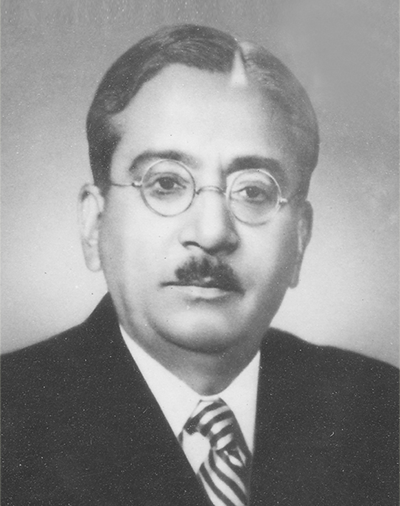
Dr. Mata Prasad
1954 - 1957
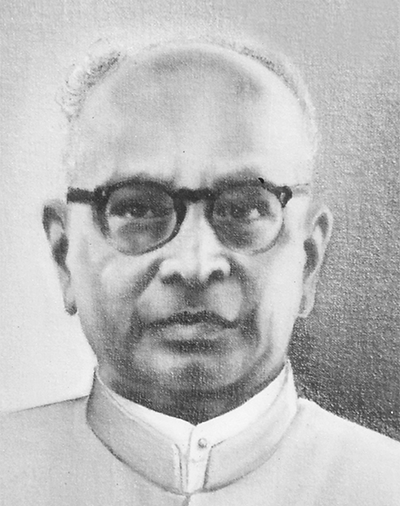
Dr. A.N.Kappann
1957 - 1962
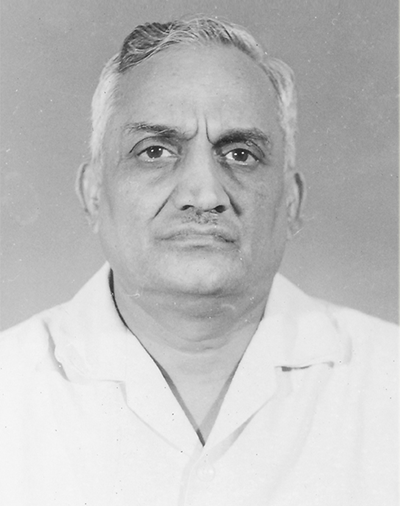
Dr. D.S.Datar
1963 - 1971
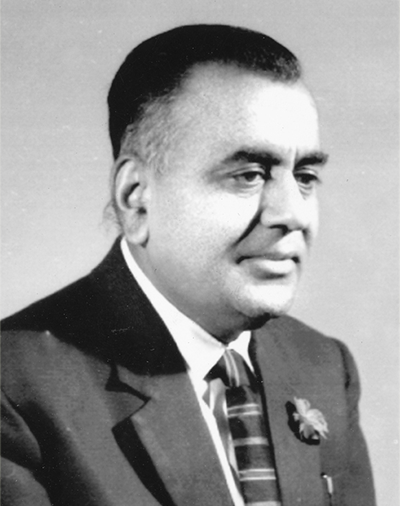
Dr. D.J.Mehta
1975 - 1980
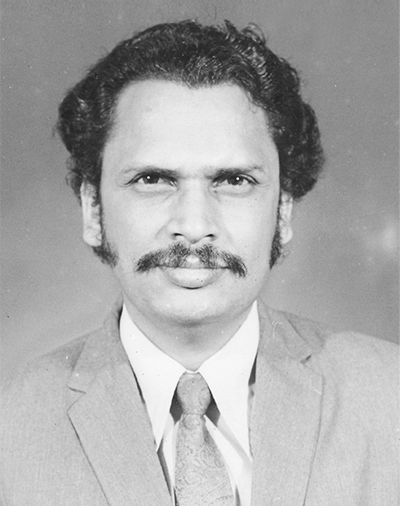
Prof. K.S.Rao
1981 - 1982
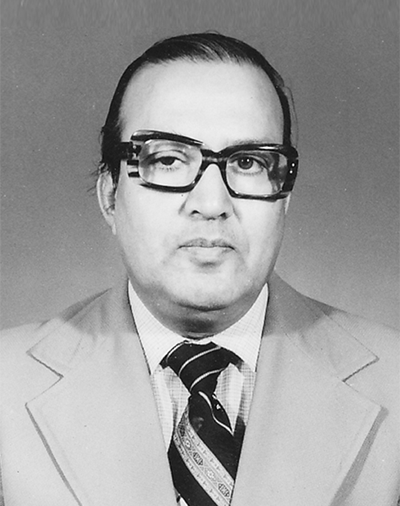
Prof. M.M.Taqui Khan
1982 - 1991
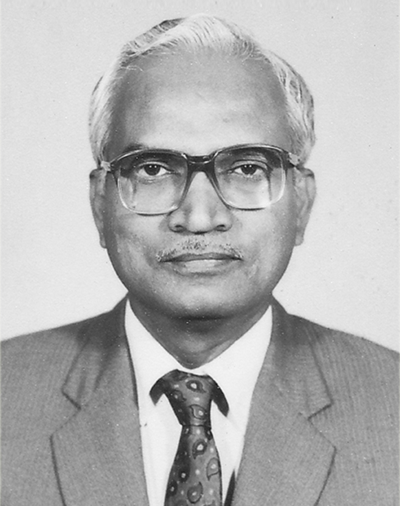
Prof. P. Natarajan
1990 - 1997
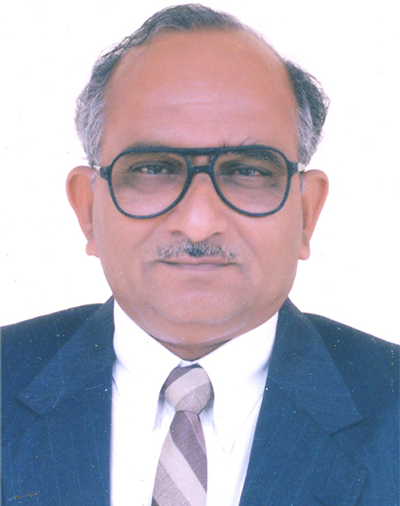
Dr. S.D.Gomkale
1997 - 1999
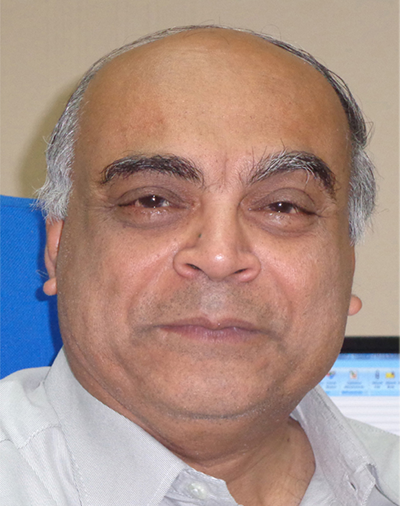
Dr. P.K.Ghosh
1999 - 2014
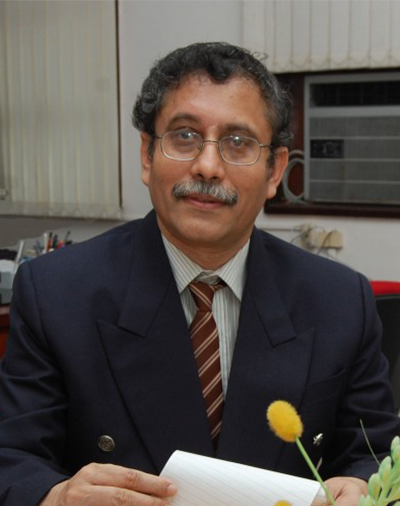
Dr Sourav Pal
2014 - 2015
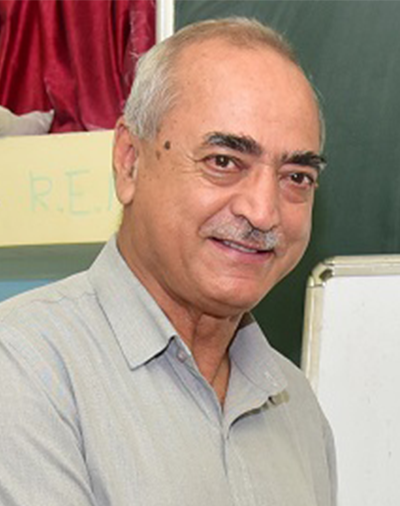
Dr SWA Naqvi
2015 - 2016
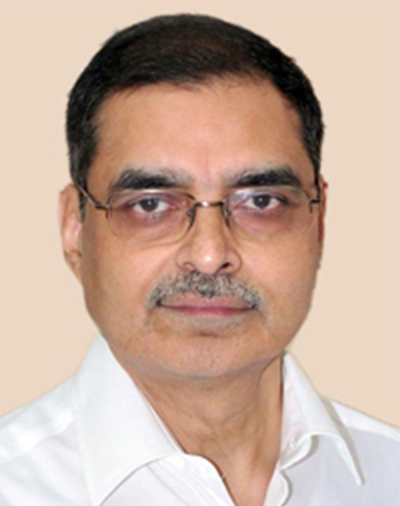
Dr Amitava Das
2016 - 2019
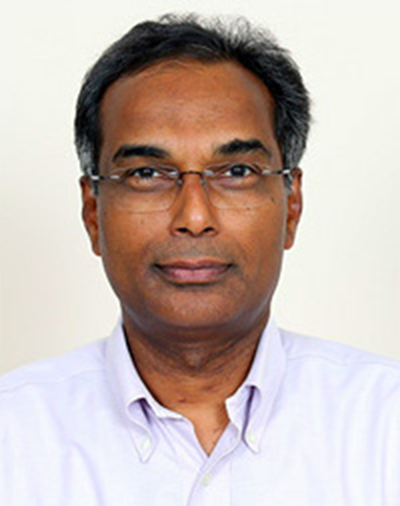
Dr.S.Chandrasekhar
1 Jan.2020 - 14 Feb. 2020
